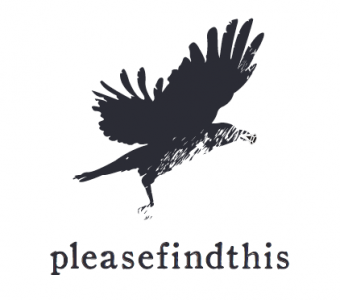
The first time I met Trista she was late to her own reading, which is to say, we were both doing a reading at the same book shop, together at an Indigo in Toronto, and I began to read my poems extra slowly because even though I had never met this person, I believed that they deserved every good chance they could get to make it to their own reading, and she did make it, her and the friend who was driving her had gone to the wrong Indigo at the right time and, after discovering their mistake, had rushed across a foreign city and arrived only mildly disheveled and out of breath and reading poetry, even when you’re only mildly disheveled and out of breath, is a hard thing to do at the best of times – at the best of times you are not entirely sure that you’re actually any good at what you do and you’re concerned that perhaps you and everyone else at your reading has made a terrible mistake and maybe you should all just stop before this hot, embarrassing awkwardness goes on any longer. But Trista was great. Her words, in between breaths, were beautiful, and heartfelt and sincere and made people quiet in that wonderful way that people sometimes get at poetry readings.
And then she came and sat down next to me and my first words to her that weren’t over the internet were, “You’re late,” because I just wanted to make absolutely sure she knew. The point is, even under duress, and maybe especially under duress, Trista is a machine that takes the world and the relationships she has in it and spins it all into sentences that have tension and drama and forgiveness and anger and love, so much love, lost and found and every shade and tint in-between those two distant points. Examples of this litter her new work, When The Stars Wrote Back, a collection of nameless poems interspersed with handwriting and beautiful illustrations that capture the strangeness and unique tenderness of being human in a universe like this one, where we love and forget how to stop loving, as she writes,
Sometimes I like to think
you still fall asleep like I do,
reaching out for me
like I keep reaching out for you.
And
What if I love you forever?
What if it never goes away?
What if I forget my own name
and only remember yours?
Trista’s work, which you can see for yourself on her instagram account as well, wonders bravely, cinematically through a relationship she wants, and doesn’t want and forgets but can’t forget and it’s about her mother and her father and heroin and the power people from your past have over you and her body and it’s about not being young anymore or innocent or anything and that’s what poetry is supposed to do, it’s supposed to point at something we cannot point at, and talk about something we cannot talk about.
When The Stars Wrote Back is a beautiful book and I hope that, especially now, in this dark apocalyptic, endless fucking hellscape of a moment in the world we find ourselves in, that you treat yourself to it and if not, that you find something just as beautiful. But that, I imagine, would be a hard challenge indeed.
When The Stars Wrote Back is available wherever good books are sold and, amongst other places, Amazon, and I thoroughly recommend it.
